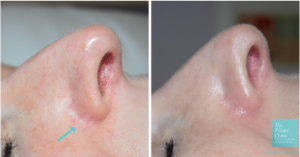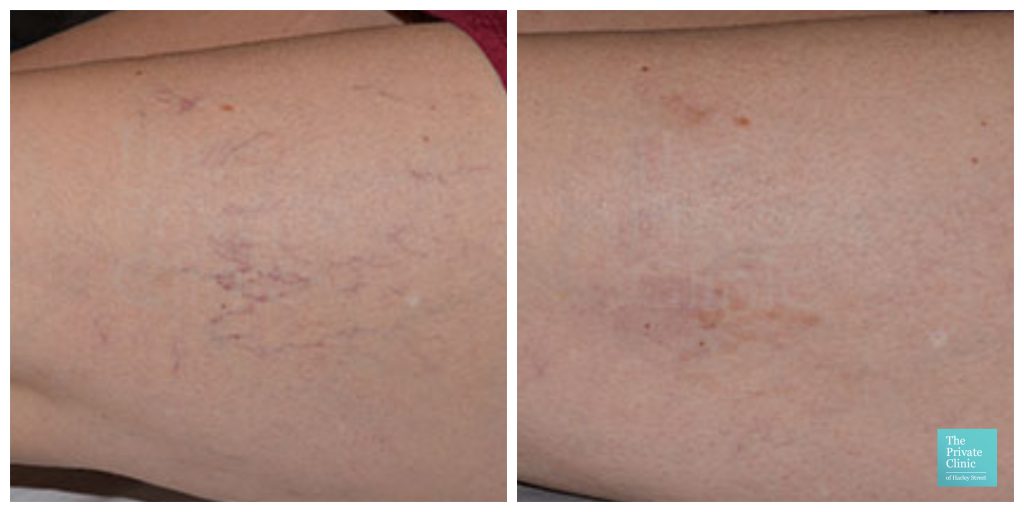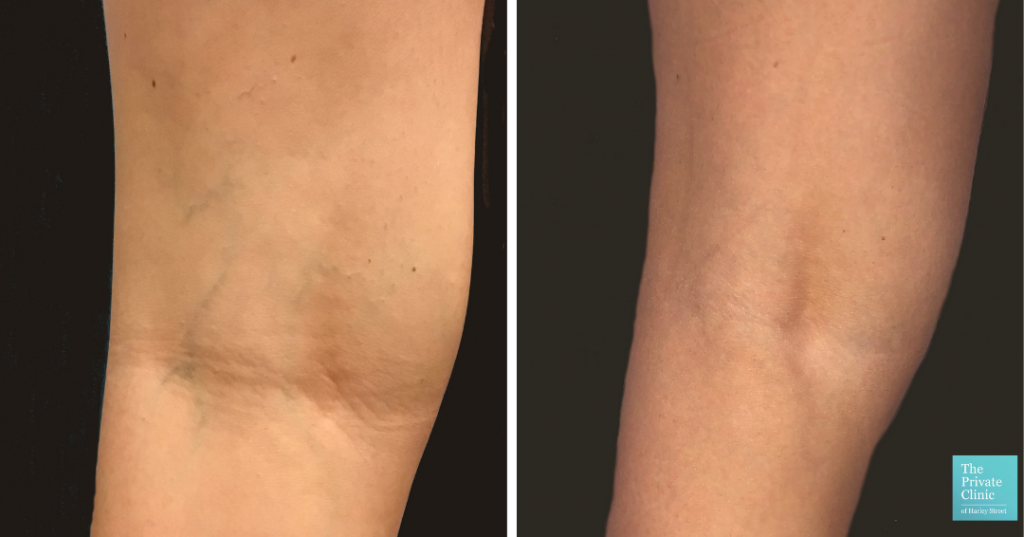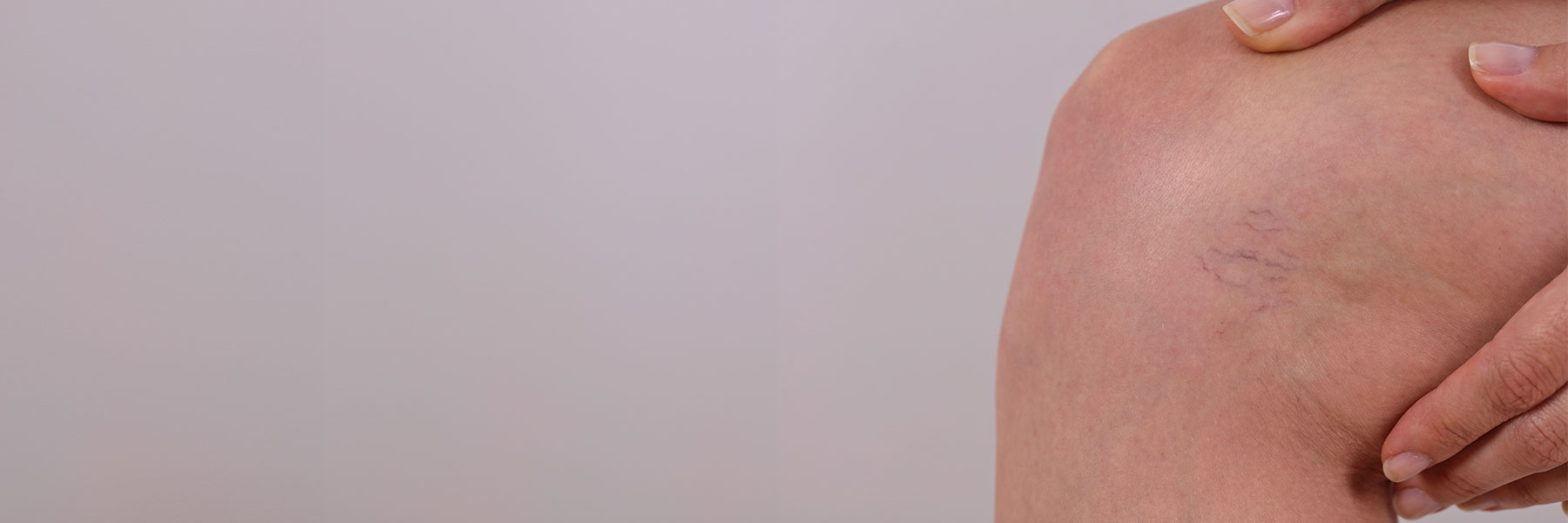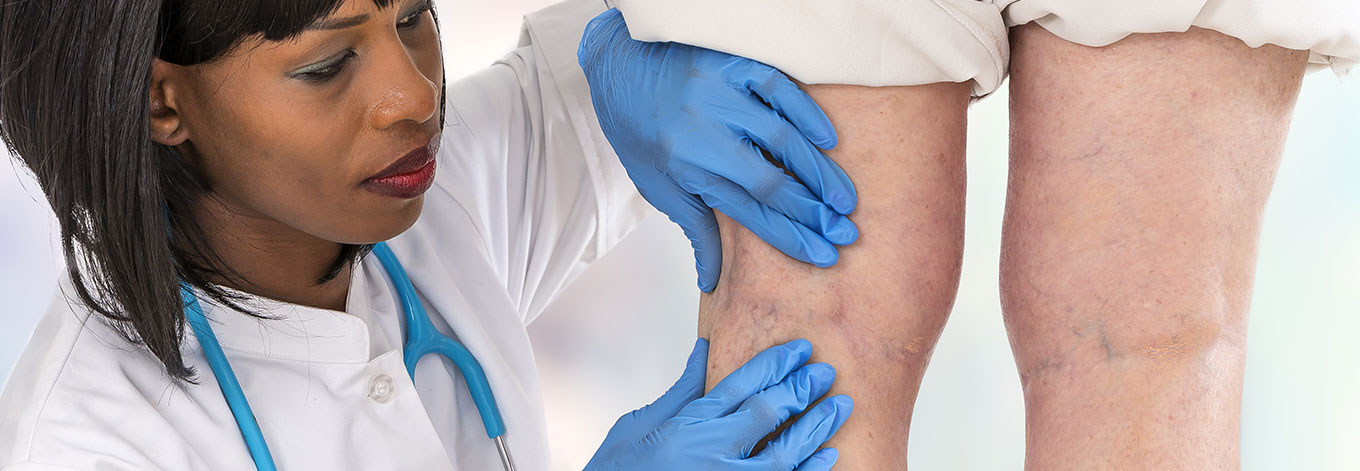
Treatment Guide FAQ: Thread Veins (Spider Veins)
Thread or Spider veins as they are commonly known affect lots of people at some point in their lives and there are a number of effective treatments available. Thread veins tend to get worse over time so it is typically recommended that patients seek early treatment. Find out all about thread veins here and what you can do about them, including tips on how to prevent them as much as possible.

What are thread/spider veins?
Thread veins or spider veins (also called telangiectasia or venulectasias) are visible, enlarged veins that appear purple, blue or red. Most commonly found on the legs and face but they can occur across the body. They often appear as 1mm in diameter. They can appear as unconnected lines or in a web-like shape, hence the name spider veins. They can start off small and hardly noticeable but they can grow and cover large areas. Usually it is just a cosmetic problem but some thread veins may come with considerably pain if they develop from deeper veins. Clusters may appear, which may be mistaken for bruising (this is called blushing or matting – telangiectatic matting)
What causes thread /spider veins?
Thread or spider veins are damaged veins that cannot return the blood to the heart and lungs properly anymore. The valves that are present in veins (to help the blood flow under lower pressure) can get damaged or the vein can become enlarged, rendering the valves useless. This results in blood pooling. Micro-tears in veins can cause further damage, releasing small amounts of blood and causing staining. Thread veins can grow because the damaged veins can cause neighbouring veins to malfunction and stretch, which is why thread veins often get worse over time.
Facial thread veins – these may be caused by Rosacea (a skin condition that affects the blood vessels). Sun exposure, repeated sneezing and frequent coughing may exacerbate and even cause thread veins.
Who gets thread/spider veins?
Below are some observations based on patients who seek treatment and as such do not represent causes but risk factors that may increase the risk of you developing thread/spider veins.
- Gender – thread veins are more common in women but men can also get them.
- Genetics – there is some evidence that you are more likely to develop thread veins if other family members have them.
- Hormones – higher levels of progesterone and estrogen can have a relaxing and thinning effect on the walls of the veins.
- Pregnancy – increased blood volume that is necessary to support the foetus can exert greater pressure on the veins, increasing the risk of developing problem veins.
- Injury or trauma – trauma to the skin tissue has the potential to damage the blood vessels causing thread veins to appear.
- Sitting or standing for extended periods – a controversial claim but some evidence has suggested that it is best to avoid prolonged periods of sitting or standing to minimise the risks of developing problem veins.
How do I treat thread/spider veins?
There are a number of thread/spider vein treatments, including laser therapy and sclerotherapy.
- Laser Thread Vein Treatments – There are a number of lasers available to treat superficial vein problems, including the Cutera Coolglide laser treatment. Destructive heat is directed at the thread veins, which cause clotting of the blood and as a response the vein will shut down quickly, diverting blood away safely. Cutera Goolglide treatment is used for thread veins on the legs, face and under eye.
- Microsclerotherapy – Also known as Liquid sclerotherapy tends to be used for thread/spider veins rather than foam sclerotherapy. Chemical irritants are injected into the area of the vein which then irritates the lining of the vein causing it to collapse. Blood is safely diverted and the body gets rid of the damaged vein. It is a minimally invasive procedure with very little downtime. Sclerotherapy is only suitable for thread veins on the legs.
- IPL (Intense Pulsed Light) – IPL treatment is also available which uses a diffuse concentration of light that heats up the skin, with a similar but less intense action to laser treatments (which are far more direct and concentrated). IPL is best used for facial thread veins.
- Regenlite – This is a pulsed dye laser which is ideal for targeting redness within the skin. The laser energy beam is able to selectively target only the thread vein/blood vessels that require treatment without affecting the surrounding skin. Ideal for facial and leg veins.
How can I prevent thread/spider veins?
- Healthy lifestyle – avoid excessive alcohol and smoking if you are prone to facial thread veins. Keeping to a healthy weight will also prevent undue pressure on the valves in the legs and decrease the risk of vein problems. A healthy diet (e.g. grapes and Vitamin C, E and K) can help minimise risk as well.
- Avoid prolonged sun exposure – you should always be taking extra care in the sun and wear SPF cream 365 days a year even in the UK so make sure you’re following such guidance.
- Avoid very hot or very cold water – you can adjust the shower temperature so it’s not so hot or cold.
- Compression garments – regularly wearing compression garments can help to improve the flow of blood in the legs
Thread/Spider Vein Treatment at The Private Clinic
The Private Clinic of Harley Street has over 40 years of medical experience treating patients for a wide variety of cosmetic and medical problems, including thread/spider veins. Having performed over 7,000 treatments, we have an excellent track record on removing thread or spider veins providing minimally invasive treatments utilising the latest technologies.
- See our thread vein before and after result photo gallery
- Read our extensive thread vein FAQs
- Take a look at our thread spider vein blogs
- Our vein clinics are located in London Harley Street, Birmingham, Leeds, Manchester, Northampton and Bournemouth.
Book a consultation
We specialise in minimally invasive procedures using the latest and most advanced methods available from our expert medical team across the UK. To find out how and why we can help you, please call us on, 0333 920 2471 or use our online thread vein contact form.





